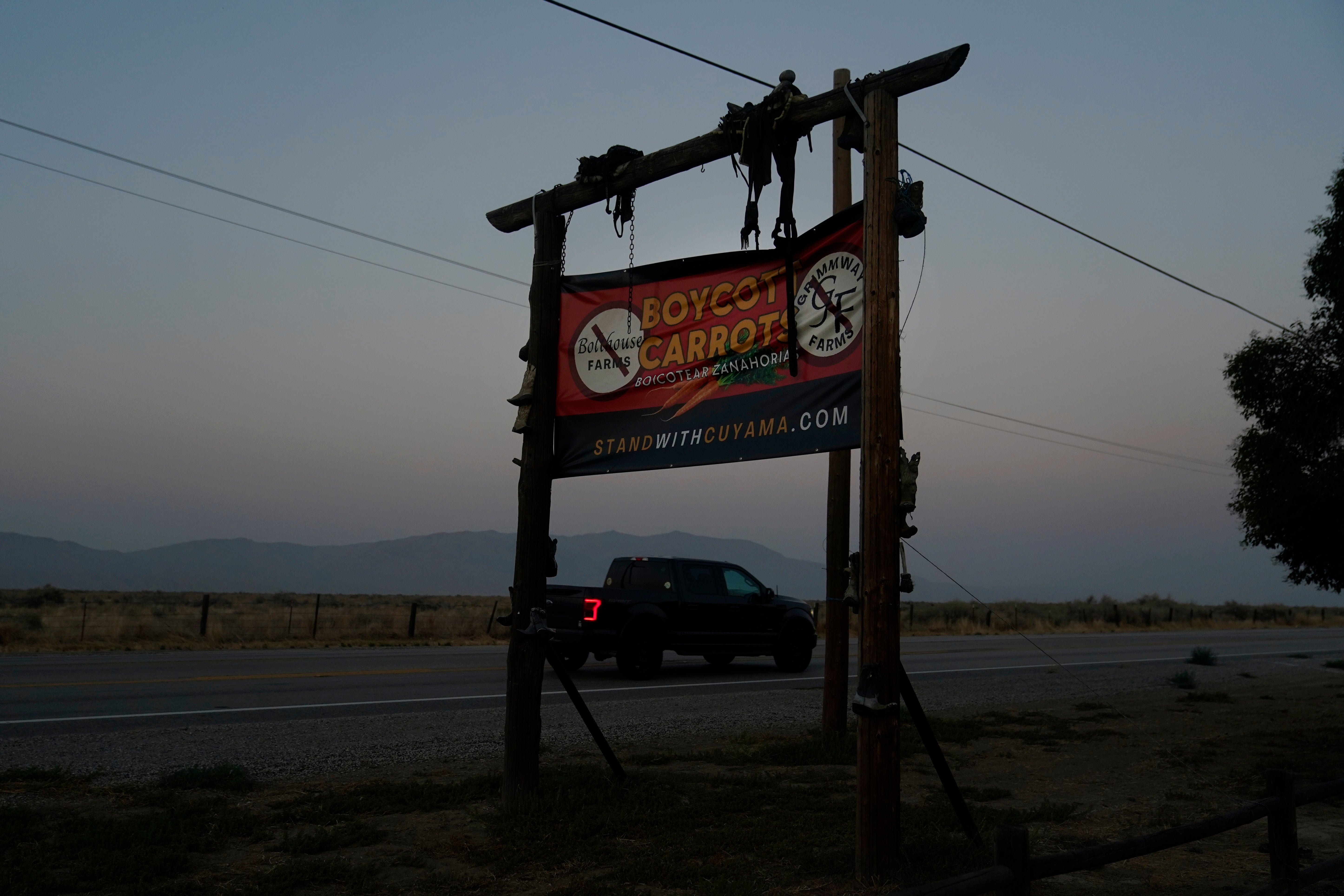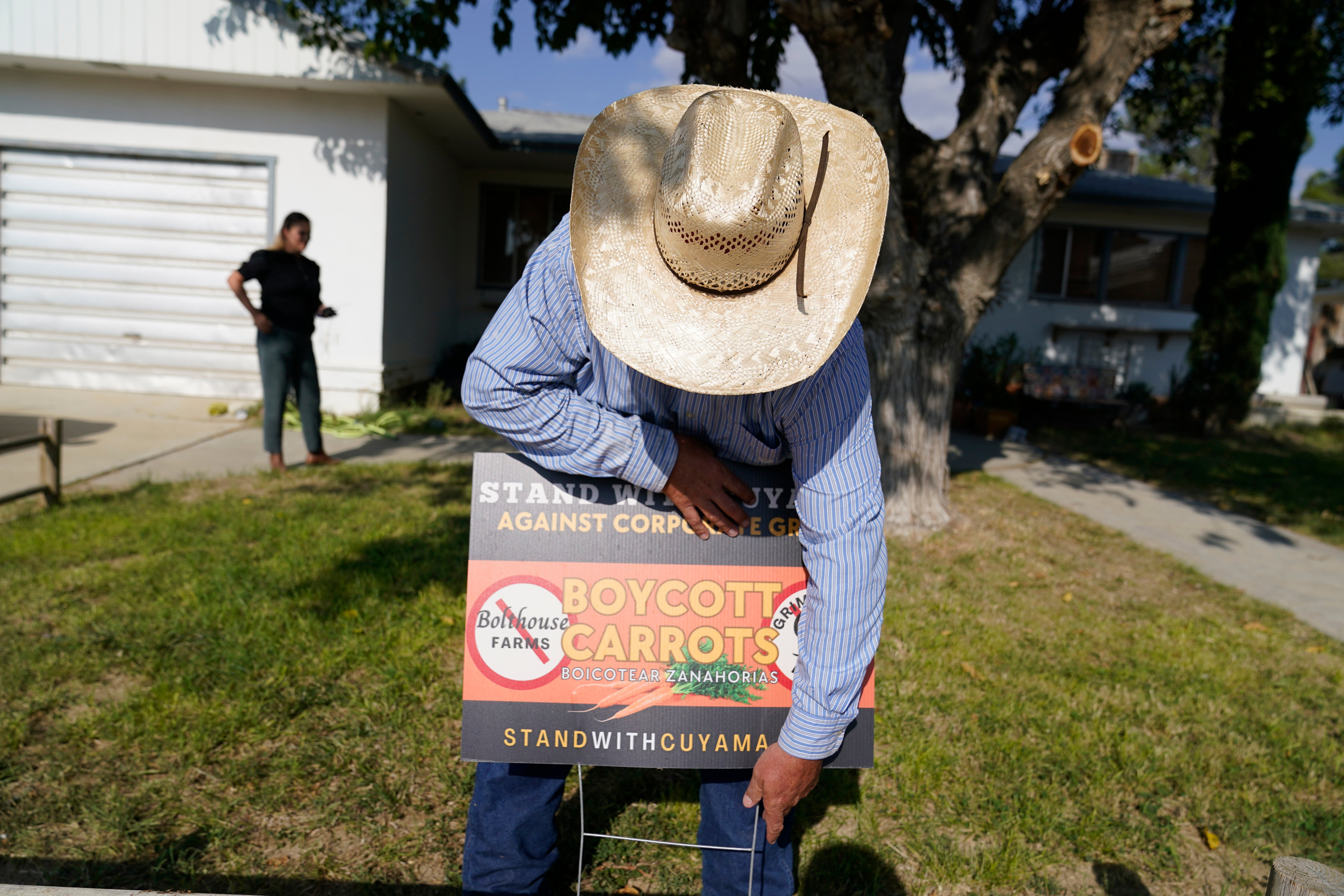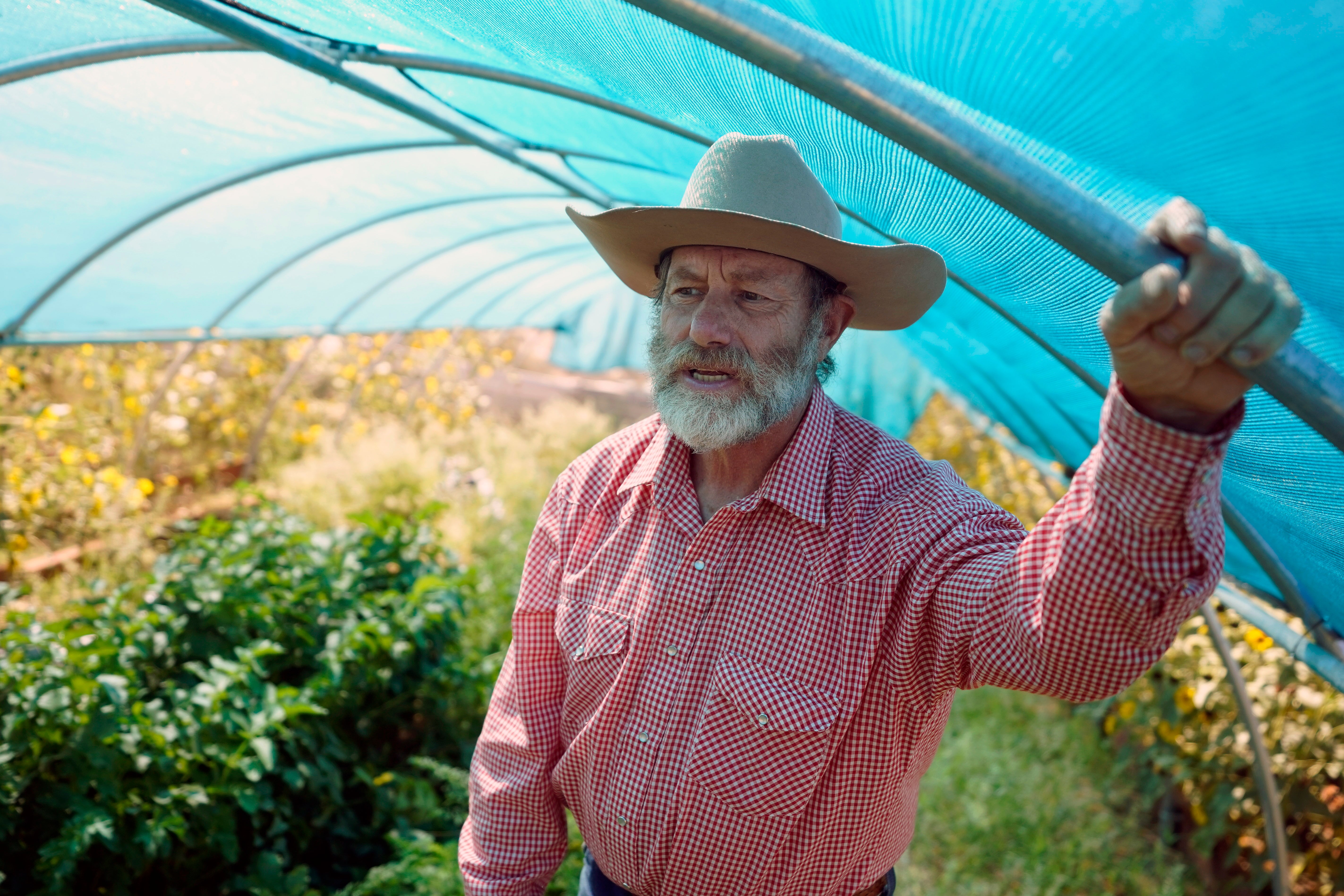Carrots are facing a boycott in California
Carrot-boycotting residents say their communities are being financially drained over water lawsuit

Your support helps us to tell the story
From reproductive rights to climate change to Big Tech, The Independent is on the ground when the story is developing. Whether it's investigating the financials of Elon Musk's pro-Trump PAC or producing our latest documentary, 'The A Word', which shines a light on the American women fighting for reproductive rights, we know how important it is to parse out the facts from the messaging.
At such a critical moment in US history, we need reporters on the ground. Your donation allows us to keep sending journalists to speak to both sides of the story.
The Independent is trusted by Americans across the entire political spectrum. And unlike many other quality news outlets, we choose not to lock Americans out of our reporting and analysis with paywalls. We believe quality journalism should be available to everyone, paid for by those who can afford it.
Your support makes all the difference.Local residents in New Cuyama, California, have joined in the fight over the rights to water supplies in their tiny arid town by tactfully boycotting carrots.
It may seem surprising that this humble root vegetable is at the very centre of a years-long battle between residents and crop growers versus big corporate farming companies, but the carrot has an important role in this bizarre debacle.
It all started when two of the world’s largest carrot-producing companies, Grimmway Farms and Bolthouse Farms, situated themselves in the valley to grow carrots and allegedly started to soak up the desert town’s precious water supply.
As you drive down the road in Cuyama Valley, north of Santa Barbara, the tracks are lined with signs that announce the words “BOYCOTT CARROTS” and “STAND WITH CUYAMA AGAINST CORPORATE GREED,” reports The Los Angeles Times.
The two carrot producers filed a lawsuit in 2021 against a multitude of Cuyama farmers, ranchers and whole communities over a dispute over their rights to pump the valley’s groundwater.
Residents of the remote community are now lumbered with mounting legal bills, which has only made them retaliate by erecting the boycott signs.
The legal fees have slowly started to paralyse the community, with worries that school districts and low-income families will be severely affected by the money being drained out of their area.
Charlie Bosma, one of the boycott organisers and a local fruit farmer who grew up in Cuyama Valley, told the local outlet that the legal fee overload is causing their community a lot of pain.

“That’s taking money out of what we could put into our kids,” Mr Bosma, who is also the local high school’s athletic director and football coach, told The Los Angeles Times.
“It’s gouging our school. It’s gouging our water district. It’s gouging every landowner in this valley.”
The financial pressure has even led to a proposal by the Cuyama Community Services District to propose an increase in the monthly rate of water and an additional surcharge to tackle their $45,000 legal fees over the last fiscal year.
The issue lies within a new state law that was supposed to dissolve any water pumping issues.
After a historic drought in 2014, California decided to pass a law limiting the amount of water pumped out of the basins and requiring local agencies to plan to stop overpumping and stabilise groundwater levels by 2040.
The Cuyuma Valley basin has been deemed as “critically overdrafted” and would need to cut its pumping by two-thirds to meet the 2040 goal, according to The Los Angeles Times.
The lawsuit, initially filed in 2021, saw both farms arguing that they have complied with assigned cutbacks to water but feel that other farmers are getting a free pass to these compliances and have taken the issue to court to try and win a more fair solution to reduce pumping throughout the basin and not just on their farms.
Grimmway and Bolthouse Farms said they are committed to reducing water use to help the valley’s sustainability groundwater management plan, the local outlet reports.

The smaller farmers and other residents have argued that it is the large companies who are excessively pumping and are now also draining money out of their communities, the outlet said.
Records obtained by the outlet allegedly show that the two companies pumped more than 28,000 acre-feet of water last year, around 65 per cent of all measured pumping reported to Cuyama’s local groundwater agency.
“It’s just literally mind-boggling where they’re farming,” said pistachio tree farmer Lee Harrington, whose legal fees have amounted to $50,000.
“They want our water. They didn’t want the state telling them how much water they can pump,” he told AP.
Jean Galliard, a Cuyama advisory committee member who sells his garden-grown produce, said that paying a lawyer rather than re-investing in his business is proving problematic.
“We feel we are being totally overrun by those people,” Gaillard said. “They are taking all the water.”
According to reports, both farm companies have since dropped out as plaintiffs from the lawsuit, but the landowners that lease the farmland to the carrot farmers have continued with the litigation.
Grimmway Farms said in a statement to The Independent that they initially joined the lawsuit to “ensure an equitable allocation of water basin-wide to protect the groundwater rights of all users.”
Yet the company followed that: "It has become clear, however, that many do not support the adjudication. Our relationships with the residents of Cuyama are more important and valuable to us than this court case.”
Bolthouse Farms also removed themselves from the suit and told The Independent that they are tenants of the land rather than owners, so they are focusing on reducing its water use by 65 per cent by 2040.
“Given our existing actions to reduce water, it no longer makes sense to continue as a plaintiff in this lawsuit,” they said in a statement.
“Together, with our neighbours and fellow farmers of Cuyama, we look forward to making a positive impact on the land, people, and future of food.”
Bolthouse Land Co., which split from Bolthouse Farms in 2005 but still leases its land to the growers, is continuing in the case.
“The only way the Cuyama Basin will achieve sustainability is if water cutbacks are shared equally among all groundwater users,” Daniel Clifford, vice president and general counsel for Bolthouse Properties, told The Los Angeles Times.
“The fact that some significant groundwater users were unwilling to agree to a reduction in their groundwater usage necessitated the assistance of the Court.”
The Independent has contacted Bolthouse Properties for comment.
Join our commenting forum
Join thought-provoking conversations, follow other Independent readers and see their replies
Comments